|
Originally published at AIER.
Both major presidential candidates, Joe Biden and Donald Trump, have leaned towards protectionism, a stance recently echoed by Terry Schilling in The American Conservative. Unfortunately, this perspective misses the mark. Protectionism is not the solution to revitalize American manufacturing or the economy. The real culprits are flawed internal policies — excessive government spending, high taxes, and stringent regulations — that stifle growth and innovation. Politicians from both sides of the aisle often scapegoat countries like China and Mexico for the decline in US manufacturing. This narrative overlooks reality. Technological advancements and productivity gains are the primary drivers of change in manufacturing, and that’s a good thing for the many beneficiaries at the expense of the few. Industrial production in manufacturing has remained relatively flat, indicating stable output despite economic fluctuations, while manufacturing employment has declined significantly, reflecting the sector’s increased productivity and automation. In short, we don’t need as many hard jobs to provide the same output, and those displaced individuals can find better avenues to flourish, even with tough transitions. While it would be great if there were a way to protect everyone’s job, this is a fool’s errand resulting in control by politicians and bureaucrats in government at the expense of everyone else. Free-market capitalism is needed now more than ever, not big-government socialism, which is already sending us down the road to serfdom. American manufacturing’s decline is largely due to domestic policies that reject free-market capitalism, thereby hindering economic growth. Progressive policies have led to excessive government spending, high taxes, and overregulation. The federal government is spending about 25 percent of GDP and running nearly $2 trillion deficits, including paying about $1 trillion in net interest payments annually, even with record-high tax collections. Add to this how the Competitive Enterprise Institute reports federal regulations cost the US economy $1.9 trillion annually, equivalent to 7 percent of GDP. Spending and regulations shackle about one-third of our economy, creating perverse incentives for businesses and workers to compete and innovate. The Trump administration’s efforts to boost manufacturing through tariffs led to trade wars that aimed to bring jobs back to the US. These measures backfired, however, increasing costs for American businesses and consumers, as tariffs are just taxes on Americans. Manufacturing output saw little sustained improvement, and employment gains were modest and short-lived. Deficit spending, which contributed to an appreciated currency from foreigners’ demand for the US dollar, made it cheaper to purchase foreign goods, exacerbating the trade deficit. The trade deficit expanded even after Trump imposed tariffs on Chinese goods. Similarly, the Biden administration’s attempts to revitalize the sector through initiatives like the American Jobs Plan and the Inflation Reduction Act have yet to do more than drive up the deficit and prop up specific markets. Despite potentially good intentions, these policies have yet to deliver the promised results, often perpetuating the same issues of overregulation and high spending. The United States-Mexico-Canada Agreement (USMCA), which replaced NAFTA and mentioned in the piece, introduced more protectionist measures than its predecessor. The USMCA’s stringent labor and content rules have complicated trade and increased production costs, undermining its effectiveness in promoting free trade. These provisions counter what should have been done to promote more trade and prosperity. It is wise to remember that free trade has provided the best opportunities for people to prosper and has significantly reduced extreme poverty globally, including in China. America should not isolate itself from other countries, as we benefit from a growing global demand for our products and the supply of goods we can purchase from abroad. Consumers and producers in America are better off with more domestic and international trade. As we don’t want to produce everything we consume daily, trading with others is the most efficient way to meet our needs. Our national debt, driven by excessive government spending, is a significant economic burden. This debt will continue to grow without the resolve to cut spending and implement a strong spending limit. The Federal Reserve’s monetary policy, which has reduced purchasing power and higher inflation, also impacts manufacturing and should be regulated through a monetary rule. The PROVE IT Act aims to ensure that carbon emissions from imports are accurately measured. Still, the underlying assumption of a need to tax carbon dioxide — a necessary component of life — is flawed. Pigouvian taxes are problematic because they often target the wrong factors at incorrect tax rates, essentially serving as tools for government overreach rather than effective economic policy. The focus should be on minimizing government control over economic actions, which create more problems. A carbon tax or one of its spinoffs is a misguided attempt to control what the EPA doesn’t consider a pollutant, leading to worse outcomes for everyone, especially the poor. Another way to improve relationships with countries and put more collective pressure on China to liberalize while meeting the needs of consumers and producers in America would have been to approve a version of the Trans-Pacific Partnership (TPP). This trade agreement negotiated by the Obama administration allowed expanded free trade with 11 other Asia-Pacific countries (Australia, Brunei Darussalam, Canada, Chile, Japan, Malaysia, Mexico, New Zealand, Peru, Singapore, and Vietnam). By partnering with multiple countries, America could have promoted free trade practices that fostered a more robust economic environment that competes with China, Russia, and other potential adversaries. The TPP, as detailed by the Council on Foreign Relations, aims to enhance trade and economic integration across the Asia-Pacific region, providing significant benefits to all member nations. The TPP would reduce tariffs, establish common trade standards, and open new markets for American goods and services, ultimately leading to greater economic growth and job creation at home. Unfortunately, Trump rejected the TPP when he took office in 2017 instead of trying to negotiate the TPP better. While America was left out, the other 11 countries joined trade agreements after TPP’s demise, a major setback for Americans that could have been avoided. Revitalizing American manufacturing requires addressing internal policy failures rather than blaming foreign competition. We can ensure long-term prosperity by reducing government interference, embracing free trade, and fostering a competitive environment. The better path forward with fewer trade-offs lies in free-market principles, which have the power to drive innovation, efficiency, and economic growth. It’s time to shift the focus from protectionism to fostering a robust, open market that benefits everyone.
0 Comments
Watch interview at NTD News.
Vance Ginn, president of Ginn Economic Consulting and former chief economist for the White House Office of Management and Budget, offers his analysis of the latest U.S.-China policy after the Biden administration recently announced a 100 percent tariff on Chinese electric vehicles. LPP Bonus Episode | Why Tariffs, Immigration & Antitrust Laws can be HARMFUL w "The Immigration Guy"9/6/2023 In this bonus episode, we discuss: 1) How immigration helps the U.S. economy and the truth behind common immigration myths, such as fear that immigrants "steal jobs," 2) Why the tariffs against China didn't work, and the tyranny of excessive government spending; and 3) Dangers of antitrust laws, and the importance of letting markets work. Be sure to check out and subscribe to “The Immigration Guy” podcast.
You can watch this episode and others along with my Let People Prosper Show on YouTube or listen to it on Apple Podcast, Spotify, Google Podcast, or Anchor. Please share, subscribe, like, and leave a 5-star rating! For show notes, thoughtful insights, media interviews, speeches, blog posts, research, and more, check out my website (www.vanceginn.com) and please subscribe to my newsletter (www.vanceginn.substack.com), share this post, and leave a comment. President Biden recently visited the humanitarian crisis along the U.S.-Mexico border but mostly used it as a political stunt to offer more failed policies and chastise Republicans. Republicans have also had years to solve immigration issues, but the situation continues. Meanwhile, Biden and former President Trump have similar protectionist trade policies, which have come at a cost to Americans.
Given the gains from immigration and trade in a globally connected economy, many on the left and the right overlook how government failures of a broken visa system and costly big-government are the source of these problems. And this oversight leads to many of their big-government solutions that aren’t rooted in sound economics but rather winning votes. Immigration and trade overlap in many ways as they are exchanges with people across international borders. Given the rule of law and private property rights are essential in our republic, there are roles for government to enforce the rules of the game but otherwise politicians should address bad policies in the U.S. before trying to blame tangential problems on other countries or “market failures.” For instance, have you ever heard that “immigrants and trade steal jobs”? It’s a myth. The notion that immigrants “steal jobs” supposes that adding more people and different kinds of knowledge and innovation to the economic pie somehow prohibits the native-born population from prospering. Simply put, the aversion to immigrants joining the American workforce is rooted in fear of competition. Moreover, much of the skepticism fueling fear of more working immigrants tends to also be directed at international trade. But the gains to be acquired from immigration and trade outweigh the suspected costs. We would be wise to let markets work within the rule of law instead of imposing arbitrary restrictions and growing government. Working immigrants do not steal jobs. But, as economist Ben Powell recently noted in my conversation with him, they do change the mix of jobs as they expand the capacity of the economy with more workers. Similarly, when young people graduate college and enter the labor market each year, they don’t “steal jobs” but often accept the lower-skilled positions while increasing productivity. These groups support increased competition, fuel the creation of new jobs, and permit the native-born population to work in positions in which they’re more productive. They also increase demand for goods and services provided by lower-skilled workers. So, immigrants and new graduates alike can increase net jobs. When I hire a contractor to install my ceiling fan, I don’t view it as them stealing my job because someone else is better at it. Even though I pay for the service, it’s a trade that ultimately benefits me or I wouldn’t do it, as not learning how to install the fan gives me more time to do things which I enjoy. The contractor and I mutually benefit, just like with all exchanges with people whether in the same community, same state, same country, or another country. Barriers to immigration and trade, such as visa limitations, border walls, tariffs, and quotas, are barriers to human cooperation enforced by politicians with limited knowledge. A more productive path forward would be pursuing immigration reform that improves the visa system, making it easier for immigrants to come legally. Border walls, such as the one in Texas, are a scapegoat and far cry from addressing the real issues needing reform. Similar to the fear of immigration, proponents of trade protectionism often fail to understand that the exchange is as economically simple as it is non-threatening. Whether a Texan is trading with a New Yorker or someone from China, it’s individuals, not places or entities, trading for mutual benefit. A greater exchange of goods and services through trade promotes competition as the expanded pool of resources for consumers encourages producers to innovate to stay competitive or risk closing. International trade doesn’t steal U.S. profits any more than immigrants steal jobs. But, like immigration, it allows people to focus on producing the goods they have a comparative advantage instead of being pressured to supply everything for themselves. The goal should be to reduce costs of doing business so there are abundant opportunities for American workers and businesses to flourish by cutting government spending, taxes, and regulations. Restricting trade and immigration ultimately restricts the prosperity supported by free-market capitalism by keeping out an influx of knowledge, skills, and goods and services that made the American melting pot so great for so long. Anti-trade and anti-immigration are anti-growth. Free markets are really free people. We ought to find free-market solutions to advance freedom and opportunity rather than impose costly barriers that hinder them. As economist Peter Boettke recently in my conversation with him: when ordinary people are given elbow room to grow, economies thrive and people can prosper. Originally published at Econlib. America is in the midst of an identity crisis, and it’s probably not the kind you’d think. Our nation is wrecked by an abysmal economy and unhappy people losing confidence in their country. In such unhappiness, people on both sides of the political aisle too often propose “solutions” that grant the government more control of our lives, even though that control is usually the source of the problem.
The American experiment has paved the way for millions to escape poverty and build a better life via a free-market system with a constitutional republic that encourages innovation and results in more human flourishing than ever before. We need to get back to those roots. I had the opportunity to discuss this phenomenon with Dr. Samuel Gregg, author of the book The Next American Economy and distinguished fellow at the American Institute for Economic Research, who said this country’s founding values are based on “liberty and personal responsibility.” What set America apart was a vision for commoners to determine their own future, and we continue to rank as the most entrepreneurial country in the world. American’s earliest ideals demanded liberty and responsibility, rejecting directives from a distant King. As a result, the roles of the federal and state governments were carefully managed by a system of federalism, with checks and balances to restrain overreach and protect liberty. According to Gregg, this ongoing experiment is why immigrants are continually inspired to leave their homes and venture to the United States. These core tenets of America have become less defined over the past century. America has increasingly chosen big government over individual liberties, thereby reducing the benefits of free-market capitalism. The major expansions of government started in the progressive era, with Presidents Teddy Roosevelt, Woodrow Wilson, and Herbert Hoover. Those historic expansions were put on steroids by President Franklin D. Roosevelt’s “New Deal,” which prolonged and deepened the Great Depression. Likewise, President Lyndon B. Johnson’s “Great Society” program ballooned government through the creation Medicare and Medicaid, among others. The results have been massive government spending with increased dependency on government programs. President George W. Bush’s expansion of Medicare with Part D provided some prescription drug coverage for seniors, with questionable results, at a massive cost. President Barack Obama’s Obamacare expanded government control, contributing to the high cost and declining quality of US healthcare. President Trump’s attempt to punish China with tariffs actually punished low-income Americans most. Most recently, President Biden’s 2022 “Inflation Reduction Act” further grows government, without reducing inflation and at a huge cost to taxpayers. Inflating the role of government in an attempt to solve underlying issues created by big government created a vicious cycle that continues today. Government meddling distorts the economy by blocking and confusing free people’s choices. This results from a cultural shift, where Americans increasingly seem to believe government can solve problems better than markets or individuals. This belief is contradicted by the evidence. The lack of belief in free markets is really the lack of believe in free people, as the market is nothing but people. Big government is usually the cause of economic and social problems, so trying to solve them with more government just exacerbates the issues. A severe deficit in the knowledge of history, both of culture and economics, helps explain why post-modern socialist solutions increasingly entrance younger generations. Unlike older countries, America’s identity comes from the “texts, documents, and debates” that created our founding, says Gregg. Surveys show that only 1 in 3 Americans can pass a citizenship test, because most of them aren’t familiar with the foundational ideas outlined in our texts and documents. A national identity crisis is near-inevitable, when we forget our core values of liberty and personal responsibility The further we stray from the principles that made our nation great (including free-market capitalism, a constitutional republic, and personal responsibility) the more swiftly we head down what economist Friedrich Hayek called “the road to serfdom.” Only by learning our unique history, and grasping the principles of free-market economics free from burdensome interference, can Americans embark on the next American economy. Originally published at AIER. Texas leads the nation in economic growth and international trade. Were Texas a country, it would have the world’s 10th-largest economy—a ranking achieved in no small part by the state’s deep involvement in international trade. Local, national, and international trade provide the ability for more extensive specialization, and each is an important component of Texas’ economy.
Great discussion on these issues with Texas Comptroller Glenn Hegar, Leila Afas of Toyota Motor Co., Representative Matt Shaheen, and Doug McCullough of the Lone Star Policy Institute. Read the TPPF report on how people prosper from NAFTA and trade. In this Let People Prosper episode 67, let's discuss the importance of sustaining and improving the Texas Model of no personal income tax, relatively low taxes, relatively less government spending, and sensible regulation that allow entrepreneurs opportunities not available elsewhere. This can be boiled down to: Institutions Matter. Let's recall previous discussions highlighting these key points while noting how Texas led the way in job creation again in 2018.
#LetPeopleProsper Week 2 TXLege Happenings--Ban Income Tax, Cut Property Tax, & Free Trade: Let People Prosper EP 661/18/2019 In this #LetPeopleProsper episode 66, let's discuss what happened during Week 2 of the 86th Texas Legislature.
My op-ed on the need to ban a personal income tax in Texas in the Victoria Advocate was tweeted by Governor Greg Abbott. That op-ed also noted the need to cut the school maintenance and operations property tax with TPPF's plan of simply slowing government spending growth. And I had another piece in The Hill that noted the benefits of free trade. Finally, the Legislative Budget Board adopted a spending limit based on population growth and inflation last Friday. Near the end of the discussion (watch starting at 6:20), Chair Jane Nelson notes, at Speaker Dennis Bonnen’s request, that The Honorable Talmadge Heflin said TPPF wouldn’t include Harvey-related money in budget figures. This is correct as long as it is transparent and one-time funding. It's a pleasure to work with him every day. Regarding the recent budgets, we posted a blog post with more information comparing the House and Senate budget recommendations with the Conservative Texas Budget. #letpeopleprosper TPPF's Policy Orientation Recap & Texas' LBB Spending Limit: Let People Prosper Episode 641/13/2019 In this Let People Prosper episode 64, let's discuss the Texas Public Policy Foundation's Policy Orientation, which was a sold out event that helps define the narrative for the 86th Texas Legislature, and highlight the recent spending limit set by the Legislative Budget Board.
The following are the panels that I moderated or participated in some capacity and my key takeaways with resources:
The other big news on Friday was that the Legislative Budget Board (LBB) set the state's spending limit for the upcoming 2020-21 budget. This spending limit is on only general revenue not dedicated by the constitution which is less than half of the total budget. While statutorily the spending limit should be based on growth in personal income, last session the LBB chose the rate based on population growth and inflation. This time the spending limit is 9.89% for the 2020-21 budget, which is based on an increase of 8.39% in population growth and inflation and 1.5% for Harvey. This is another good sign that the LBB continues to use a measure for the limit that better matches the average taxpayer's ability to pay than the inappropriate growth rate of personal income. This spending limit is in-line with the recent BRE increase of 8.1% in general revenue-related funds and provides funds available to cover needed expenses along with property tax relief. Specifically, the Legislature could use half of the funds of about $4.4 billion for spending and 90% of the rest of the funds of about $4.1 billion to buydown the school maintenance and operations property tax. There's been much discussion about international trade, particularly NAFTA with trade between the U.S. and Mexico, in the news and social media after President Trump's recent tweet-storm against the "bad deal." But let's cut to the chase: people prosper from trade. Sure, President Trump is correct that the U.S. is running a trade deficit with Mexico, whereby imports exceed exports, this year that looks to surpass the deficit of $71 billion last year (see charts below); but this net trade balance is useless. True prosperity should be measured by the trade value of voluntary exchange of people importing and exporting products. This trade value between Americans and Mexicans was $557.6 billion in 2017 and is already $512.3 billion through just October 2018, meaning this year is likely to be even higher. For another example, Texas has a trade surplus with Mexico, meaning Mexicans purchase more from Texans than Texans do from Mexicans (see figures below). Consider that in 2017 Texas exports to Mexico of $97.7 billion were greater than its exports to the next 10 countries combined. And Texas imports from Mexico of $89.8 B were greater than its exports to the next 5 countries combined. But again, Texas' net trade balance with Mexico of an almost $9 B surplus is useless. True prosperity is the trade value of exports plus imports of $187.5 billion between Texans and Mexicans that year. In other words, through voluntary exchange people satisfy their desires or they wouldn't trade, providing a win-win situation, not a zero-sum game. Comparative advantage discussed by economist David Ricardo in the early 19th Century explained that an individual (or country) will produce whatever she is relatively more productive compared with someone else (another country) and thing. This is similar to competitive advantage whereby an individual is not only more productive but can produce at a lower cost, which may not always be the case with comparative advantage. I explain this and more the Let People Prosper episode 46 above. These concepts work in the real world to provide abundant human flourishing. Those people and countries that practice protectionist measures to limit trade have been poor or made poorer over time--even contributing to the failure of their nation such as in Rome or Germany. What's important here is to be as competitive as possible so that one can continue to benefit from trade by increasing productivity and finding other ways to lower production costs. This can be done through policy such as reducing excessive government spending to lower taxes and cut onerous regulations--both tax and regulatory relief have been successes of the Trump administration. However, tariffs and other trade barriers and excessive government spending by the Trump administration and Congress continue to raise the cost of production and ultimately hurt all Americans as these policy actions reduce their purchasing power. For example, the Tax Foundation notes that the Trump administration’s imposed tariffs have cost Americans $42 billion in higher taxes levied on thousands of products and threatened tariffs could cost them another $129 billion. This could total $171 billion in higher taxes which would be more than the average per year cut in taxes of $150 billion by the 2017 Trump tax cuts. Adam Smith also taught us in the late 18th Century that the extent of the market determines the division of labor and specialization. So, expanding the extent of the market through trade with people in other countries improves both of these measure of worker productivity while holding down the cost of production and therefore prices so that the least among us and everyone else prosper over time. Sure, some sectors, and the workers in them, that don't change course to compete in the expanded markets will be hurt, but people are still better off given more opportunities to work in other sectors and the advantages of an increased standard of living with more quality, affordable products and services. For more on the economics of trade and the benefits of NAFTA and trade in general, please read my paper "People Prosper from Trade: NAFTA and Texas." I also recommend reading papers presented at the Dallas Fed's recent conference on 20 years after NAFTA. The book "Economics In One Lesson" has great stuff on the economics of trade. Another good book that I read recently on trade was "Specialization and Trade" by Arnold Kling--I have a short review of it and other books at my Goodreads page.
In general, we need freer trade to let people prosper. Thanks for reading and sharing with others! In this Let People Prosper episode 61, let's discuss the U.S. Senate's passage (and soon will be in the House) of a landmark criminal justice reform bill called the First Step Act, the unanimous vote by the Texas Commission on Public School Finance of recommended changes to the system, and the ninth increase by the Federal Reserve of the federal funds rate target to a range of 2.25-2.5%. These are all key issues. But I'm particularly proud of the work that TPPF's Right on Crime team did to make criminal justice reform a priority for years and ultimately by the Trump administration. The First Step Act "provides reentry programming to help reduce recidivism, includes modest sentencing reforms, increases public safety, and gives those incarcerated a second chance once they have paid their debt to society." This is truly a step in the right direction as far too many are locked up for far too long and then return to a life of crime after because of the lack of a job and social normalcy. The Texas Commission on Public School Finance provided a number of recommendations on how to improve student outcomes, how to increase teacher pay, how to more efficiently spend taxpayer money, and ultimately how to provide tax reform. Fortunately, the final version included language similar to TPPF's property tax plan that could provide lower property tax payments for Texans across the state. This is what Texans need and deserve to assure that they have every chance possible without unnecessary government barriers keeping them from reaching their hopes and dreams. Finally, the Federal Reserve raised their overnight lending rate between banks, known as the federal funds rate, to 2.25-2.5%. This is the 9th increase since December 2015 after the Fed had left this rate in a range of 0-0.25% for seven years. The new rate remains near historic lows, as noted in the chart below. While the stock market tanked after this report, the fundamentals of the economy remain relatively strong. One reason for the decline in the stock market today was because the price of credit increased today. This raise reduces the net present value of longer term capital investments and profitability along with the expectation of at least two more raises next year.
My take is that the Fed left rates too low for too long when you compare it with an indicator of a more market-driven, "neutral" rate derived by the Taylor rule. As you'll notice in the figure below, the Taylor rule suggests a neutral rate above 4%, which is almost twice as high as the federal funds rate. By the Fed's distortion of the markets with imposing an ultra-low interest rate policy and multiple rounds of quantitative easing, there are many assets that are bound to be highly inflated and we should expect corrections in these markets as the rate is raised to a more normal level. This isn't necessarily a bad thing as letting the air out of these inflated markets will help steady the markets and ultimately the economy for a firmer foundation for the long run. Interestingly, stocks remain much higher than they were when President Trump took office, which are positive signs of a growing economy as the economic institutions were strengthened from regulatory and tax relief even as burdens were imposed by excessive government spending and trade protectionism. More to do to #letpeopleprosper. In this Let People Prosper episode, let's discuss the large selloff in the stock market as international trade issues along with some signs of slower economic growth and higher interest rates give traders anxiety while incorporating how these influence lower gasoline prices. If you want to learn more, you don't want to miss this full episode. Thanks for watching and sharing with your friends and family! I'm truly blessed to have such amazing support. While there have been some potential good signs on the trade front with a possible agreement between President Trump and President Xi, there continues to be much uncertainty about the actual agreement and the fact that it is only good for 90 days and does little to reduce higher imposed cost of trade between the two countries. In general, this needless trade dispute is far from resolved and has contributed to a steep drop in the stock market today, but there are some promising aspects of the agreement. “Just because the U.S. and China have agreed to call a truce in their trade war doesn’t mean that it’s over: This was a classic exercise in can-kicking,” economist Tyler Cowen explains in Bloomberg Opinion. “Nonetheless, most cans have quite a few kicks in them, and overall this is good news for the global economy. Instead of sweeping everything under the rug, as was the case before Donald Trump took office, America and China have found a new way of addressing conflict by talking openly.” According to the Wall Street Journal, "at the meeting in Argentina, Mr. Trump and his negotiators agreed to suspend a planned Jan. 1 increase in tariffs on $200 billion in Chinese goods to 25%, from 10%, as the two sides negotiate over Chinese economic policies." Overall, tariffs are a destructive and counterproductive trade policy, and both the U.S. and China should work toward reducing them to zero. There’s a lot of work left to do on this deal to ensure that Americans can trade with the Chinese without taxes and uncertainty that will only drive up prices and decrease prosperity. This action in the international trade arena has had costs not only of higher prices for Americans because of raising taxes through tariffs but also in raising the value of the dollar. Of course, the dollar market has many factors, which also include the Federal Reserve's potential actions of continuing to raise their overnight lending rate target. As U.S. interest rates go up compared with other countries, which essentially all developed countries have historically low interest rates, and people want to park their currency in dollars to reduce global risk, the value of the dollar appreciates compared with a host of major currencies, particularly the European euro. When the value of the dollar goes up, the price of oil falls as oil is priced globally in dollars. In other words, a higher valued dollar makes it more expensive for people in other countries to purchase oil so demand falls contributing to a lower price of oil. Also contributing to this is higher inventories of oil from near record levels of production in the U.S. from innovative techniques through fracking. This has contributed to the lowest level of gasoline prices this year, translating "to savings of about $200 million a day for Americans, said Patrick DeHaan, head of petroleum analysis for GasBuddy. DeHaan predicted that gasoline prices will fall further in coming days, but how long that will last is unclear." Given much of my academic research is in the oil and gas markets, there is much to the story of how the oil market works based on supply, global demand, and precautionary demand primarily driven by geopolitical issues. Supply is increasing, global demand is waning, and precautionary demand is heightened by the previous two factors outweigh this push upward in price. Considering that gasoline is a byproduct of oil, there is, on average, about a 2% increase in the retail price of gasoline for every 10% increase in the price of oil, and a symmetric response for a decline in the oil price over time. Ultimately, imposing tariffs on other countries naturally leads them to do the same to us. And families pay the cost. Instead of resorting to flawed mercantilist trade policy, America should lead the way in promoting free trade, which history shows supports freedom and human flourishing. This should also stabilize the stock market from such wild swings driven by policy uncertainty on a the trade and interest rate fronts. Gaining trust in money issues must also come in the form of reining in bloated federal government spending of taxpayer dollars today and in the future from rising debt. Achieving freer trade, raising interest rates to a more normal level, and reining in government spending would put the U.S. a sounder foundation for economic growth contributing to more job creation and economic opportunity for more people to prosper. #LetPeopleProsper In this Let People Prosper episode, let's discuss my recent trip to Washington D.C., where I spoke at the American Legislative Exchange Council's meetings about the importance of institutions and did an interview with Freedomworks, and then discussed the federal budget with Russ Vought, who is the Deputy Director of the White House's Office of Management and Budget. Let's also discuss the latest economic reports about the continued strength of the U.S. economy in terms of GDP growth and personal income, and examine trade issues being discussed at the G-20 Summit. Below are a few pictures from my recent trip to D.C.
In this Let People Prosper episode, I take a little more time than usual (hope you'll watch the entire episode) to share what economists like Adam Smith, David Ricardo, Daniel Hamermesh, Paul Krugman, and Milton Friedman said about international trade.
In summary, people prosper from trade (see my paper here) and I'm cautiously optimistic about the revised version of NAFTA which is now being called the US-Mexico-Canada Agreement (USMCA), especially with the reduction of some foreign trade uncertainty, but have many reservations of the toll the increased trade barriers put on the auto sector will have on Americans. The legislatures of each of these countries will not have 60 days to review and vote. Let us not forget the benefits of free trade and find ways to reduce trade barriers instead of erecting more. #LetPeopleProsper VIDEO of event "#NAFTA and #FreeTrade: Gain or Loss to Texans?" hosted by @TPPF & @Heritage here: https://t.co/U5cwxTjrXV. Panelists include @Glenn_Hegar, @dwkreutzer, and me, with @DrewWhiteTX moderating. I hope you'll watch and share it with others.
Here are other publications of mine on NAFTA and international trade: 1) Texans Support, Prosper from Free Trade 2) Renegotiating NAFTA Without Favoritism Supports Prosperity 3) NAFTA Contributes to Texas Model's Success (Overview of my academic research) 4) Trade Deficits Can Be a Good Sign 5) Fast Track to Free Trade Prosperity In this Let People Prosper episode, I'm interviewed by Josiah Neeley of R Street Institute and Doug McCullough of Lone Star Policy Institute on the Urbane Cowboys podcast about trade, NAFTA, Texas Model, and much more ("Ginn as in Gig").
You can listen to the podcast on Apple iTunes or wherever you get your podcasts. #LetPeopleProsper U.S.-Mexico Deal & Testimonies on Occupational Licensing and Budget Transparency: LPP EP 348/28/2018 In this #LetPeopleProsper episode, I discuss my last two very busy days.
With the proposed U.S.-Mexico trade deal yesterday, I was on multiple radio stations today across the nation talking about the costs and benefits of the deal and the implications for Americans. I'm still waiting to see all of the details and am lukewarm about it at this point because of the trade barriers imposed on the auto sector that will lead to higher auto prices for consumers and higher transportation prices for many businesses. However, I'm optimistic that much of NAFTA remained intact, e-commerce provisions were included to modernize the agreement, and the contract is for 16 years instead of the 5 years the Trump administration suggested. Here's my recent commentary at The Hill on this issue. I testified today before the Texas Senate Business & Commerce on deregulating occupational licensing, which is the most onerous form of labor market regulation (here's my testimony). I discussed the high costs of these and made recommendations on taking a broad look at eliminating many of them or reducing their requirements along with moving towards having employers complete a registration or certification with the state government or a private association to signal that they are able to do the job, which signaling is about all many of these licenses are good for. I'll have a paper published on this soon with Dr. Ed Timmons of St. Francis University. I also testified today before the Texas Senate Administration on the benefits of program-based budgeting and the need for zero-based budgeting. I explain this in detail in the episode, but basically our state budget today is organized by strategy that lacks transparency and makes it difficult to find granular data in the budget, especially to weed out unnecessary programs. By moving to a program-based budget that's been used in Texas before, this granular data would be available to add transparency for taxpayers and legislators while making it easier to start each program at zero and make decisions whether it should be included--otherwise known as zero-based budgeting. Please watch the video for more. Don't forget to subscribe to my YouTube channel at "Vance Ginn Economics" and continue to share this with your friends and family. Thank you! #LetPeopleProsper In this episode, I am interviewed by Liz Wheeler of One America News Network on the costs and benefits of the proposed trade deal between the U.S. and Mexico. While consumers will likely pay higher prices for autos, there are benefits of the deal as well. It's important that NAFTA continue as it supports abundant prosperity, especially in Texas.
Here's my press release today and recent research on how people prosper from trade, including NAFTA. A big part of the benefit of today's proposed bilateral trade deal is that it reduces the foreign trade uncertainty holding back economic activity. While tariffs may have contributed to a faster agreement, tariffs are nothing more than a tax and shouldn't be used in such a manner unless willing to increase taxes and raise more revenue to expand government, which isn't something I'm willing to do nor should Americans as it makes people poor. Hopefully there will be lower trade barriers overall when the agreement is finalized between the U.S., Mexico, and Canada. If not, Texans and all Americans will lose in the process. #LetPeopleProsper In this Let People Prosper episode, I discuss today's enactment by the Trump administration of $16 billion more in tariffs on Chinese products by the Trump administration along with my recent presentation before the U.S.-Mexico Chamber of Commerce in Houston on the importance of institutions along with the benefits of international trade. While there are certainly acute costs for specific people in trade activity with people in other countries, the benefits are widely dispersed. This is why it's easy for politicians to point to trade as being the problem, such as auto manufacturing or steel, when the primary problem is poor domestic policies. The facts show that trade, whether by individuals domestically or abroad, are overwhelmingly positive. Alternatively, higher taxes from trade leads to increased uncertainty for entrepreneurs that contributes to less economic activity and job creation. For example, in my recent paper I note that the North American Free Trade Agreement between the U.S., Canada, and Mexico, which got rid of tariffs among these countries, supports at least 14 million jobs in the U.S., with many of them in Texas. We should not look at trade deficits but rather trade flows. Watch the YouTube video above and view the presentation below to learn more.
In this episode, I discuss the state of the U.S. economy, including the markets, rising compensation for Americans, Federal Reserve leaves target federal funds rate unchanged in the range of 1.75-2%, and costly federal budget deficits of nearly $1 trillion that will be a drag on economic growth unless government spending is reined in along with the cost of tax hikes from tariffs.
There is a clear path to more economic growth, job creation, and resulting prosperity: capitalism without government barriers to opportunity. In other words, the federal government should uphold contracts through a justice system, provide a national defense, and deal with international commerce, but really not much more than that. Let people prosper by letting them satisfy their desires within institutions of civil society that are the backbone of America's strength. Unfortunately, too many of those institutions are hindered because of excessive government intervention at every level. Let's learn more about what we can do together. Seven out of ten Americans consider foreign trade an economic opportunity, according to Gallup. You wouldn’t expect this given the protectionist rhetoric about “unfair” trade practices and “bad” trade deficits in the news regarding the North American Free Trade Agreement (NAFTA) and tariffs.
To avoid impoverishing Americans, trade uncertainty should quickly end by reducing trade barriers in NAFTA to maintain its net benefits and end tariffs to reap the benefits of the Trump tax cuts. Let’s be clear: NAFTA isn’t a perfect agreement and other countries have poor trade practices. For example, NAFTA would ideally be one sentence: “No trade barriers between the U.S., Mexico, and Canada.” Instead it’s more than 1,700 pages of exceptions and regulations that subjectively determine winners and losers. So, a renegotiated deal towards fewer trade barriers would help people benefit from trade. Also, intellectual property rights and currency manipulation issues in other countries, particularly China, could be problems needing attention. However, tariffs are unlikely to solve those problems, especially when private U.S. firms do business in China knowing they’ll be forced to fork over ideas but do it anyway because of the profitability available from very affordable labor. Instead, the Trump administration should rejoin the Trans-Pacific Partnership talks that include many of China’s trading partners and use its negotiation prowess to benefits Americans. Ultimately, these trade uncertainties plaguing entrepreneurs’ decisions defy the positive view that most Americans have of foreign trade and reduce many Americans opportunity to prosper. What’s often lost in this discussion is that countries don’t trade with each other, people do when they mutually benefit. It’s a reason that considering trade deficits a bad deal is nonsense. What’s true is that raising trade barriers will hurt people mutually benefiting along with many others from higher prices and fewer job opportunities. For instance, Texas has much to gain or lose from NAFTA renegotiations because of about $230 billion in imports and exports with its closest foreign neighbors and largest trade partners. NAFTA has helped Texas lead the nation in exports for 16 straight years and supported at least 300,000 jobs over five years. Not only would Texans suffer from a poor deal with our North American neighbors, but Americans would also hurt as Texas has created 24 percent of all civilian jobs added nationwide since the Great Recession. While it’s easier to blame others instead of flawed domestic policies, past mercantilist attempts to dictate foreign trade have failed. Understanding that people, not countries, trade to satisfy their desires is why trade balances don’t matter much. Really, the cumulative value of imports and exports tells how much people benefit from trade across borders. For instance, Americans import $2.9 trillion in goods and export $2.4 trillion for a trade deficit of about $500 billion in 2017. However, the real value of total trade is the cumulative $5.3 trillion because individuals across borders wouldn’t have traded had they not benefited. An estimate of this economic activity shows that NAFTA supports 14 million American jobs. Passage of the Trump tax cuts last year helped to foster a more competitive domestic policy environment so individuals and businesses can flourish. Specifically, Americans have been winning within months after passage of the $1.5 trillion tax cut over a decade using a static analysis. But, given that the tax relief was, on average, $150 billion per year, the Trump tariffs could make a major cut into that relief. The figure below notes that current tariffs are a small part of overall U.S. imports, however, if tariffs on autos and auto parts take effect then almost 20 percent of imports would be taxed. With around a 10 percent tax on current imported goods, the $8.5 billion cost to Americans isn’t much. But add in the potential for a 25 percent tax on $360 billion in imported autos and auto parts, and the tax increase balloons to almost $100 billion per year. That could shave two-thirds annually from the Trump tax cuts thereby substantially reducing its expected benefits. When you consider the costs of trade uncertainty from the lack of a NAFTA deal and the expectation of more tariffs to come, just think how much faster economic growth and job creation could be. Time is of the essence for more freedom by assuring NAFTA negotiations are towards freer trade and tariffs will soon end so people prosper. www.texaspolicy.com/blog/detail/foreign-trade-uncertainty-hinders-prosperity In today's episode, I discuss the benefits of trade, both domestically and abroad. In particular, I note that trade with the Chinese, though imperfect, benefits Americans. Instead of resorting to tariffs, which are taxes on imports, we should seek to renegotiate the Trans-Pacific Partnership to deal with potential issues such as intellectual property and other concerns. The tit-for-tat tariffs in the fast brewing trade war with the U.S. and China is unlikely to lead to many policy changes by the Chinese government and will likely help only a few American producers at the expense of many American consumers (and producers).
We should first understand how the balance of trade payments matters. Americans import $505 B from the Chinese. Chinese import $130 B from Americans. This results in a $375 B current account deficit that's matched by a $375 B capital account surplus for America. In other words, we purchase a lot of goods from them relative to how much they purchase from us (current account deficit) but they send that money back to the U.S. in the form of financial investments (capital account surplus). Check out my recent paper on Texas and NAFTA and how people prosper from trade here. As Americans import $505 B from Chinese, current tariffs (taxes!) on imports of $34 B of goods, soon $16 B, & potential $200 B total $250 B in tariffs, which would be half of all imports from Chinese. At a 10% tax rate, that would mean a tax hike of $25 billion on Americans, limiting the average annual $150 billion tax cut passed last year. This would slow growth compared to what it otherwise could be, meaning fewer jobs for those potentially hurt by trade with China and counter to the tariff game. Here's how tariffs/taxes on imports from Chinese could influence Americans. Rather than hurt Americans, Trump administration should re-enter Trans-Pacific Partnership discussions to pressure Chinese on intellectual property rights and reduce trade barriers. While some say that if we have a trade deficit we win or if we have a trade surplus we lose, that's the wrong way to think about trade when everyone benefits from the exchanges that result in higher productivity and lower prices. Watch to learn more. Read my paper when you have a chance as well.
These are tough times for newspapers, particularly local papers that are still an integral part of their communities. They serve many vital functions, because no 24-hour news channel and no national political website will likely keep track of the varsity boys’ basketball scores or the proposed teachers’ raise that the school board is discussing.
What’s more, most local papers continue to shine as beacons of civility and reliability in an increasingly politicized media environment. And that’s why we should wish them well instead of forcing additional costs on them that their budgets can’t bear. Yet that’s what a new trade dispute at the Canadian border is doing. New tariffs on newsprint — which are typically a newspaper’s second biggest expense, after personnel — have caused the commodity to spike in price by about 30 percent, according to CNN. That has already meant layoffs, and will mean many more. But isn’t the whole point of tariffs to protect American jobs? Well, yes — but there are always unintended consequences. The newsprint tariffs were because one small company in the state of Washington — Northern Pacific Paper, or NORPAC — with about 300 workers complained that Canada is dumping “uncoated groundwood paper,” or newsprint, on American markets. The truth is that low demand for newsprint in the age of the internet has resulted in many American manufacturers closing down or changing their operations (demand for cardboard boxes for Amazon and other online retailers is booming, for example). And local newspapers are caught in the middle. The Beaumont Enterprise expressed it well in a recent editorial: “There simply aren’t enough mills on this side of the border to meet the demand for newsprint in the U.S., and no company is going to invest tens of millions of dollars for new mills in a shaky market. Even if they did, it would take years for them to ramp up production. ... We’re not asking for a handout or a free ride, just the opportunity to compete as best we can. If these tariffs are removed, we’ll have a better chance.” Which brings us to the real point here — free trade matters. As the Texas Public Policy Foundation’s new paper explains, people prosper from free trade, and the North American Free Trade Agreement, which is being renegotiated now. NAFTA has always been controversial, but its positive effects have become evident in the decades since it was passed. The U.S. economy expanded and millions of jobs were created after NAFTA. The U.S. Chamber of Commerce estimates trade among people in the agreement — the U.S., Mexico and Canada — supports 14 million U.S. jobs with 5 million of those jobs related to the boost in trade since NAFTA. What’s often missing from the discussions about NAFTA is the fact that countries don’t trade, people do. In this case, Americans, Canadians and Mexicans trade with each other. Americans trade with the rest of the world for the same reasons that they trade with each other. They trade because it allows them to satisfy their desires while focusing their efforts on what they do best, which in turn raises productivity, incomes, and standards of living. On the other hand, trade barriers mean higher prices for consumers, fewer jobs for workers, and less prosperity for all. Opponents of free trade — who often call for subjectively determined “fair trade” — cite trade deficits as a reason to oppose NAFTA. But that’s a misunderstanding of a basic economic principle: comparative advantage. Take the auto industry. Yes, the U.S. saw economic declines in the auto manufacturing sector (declines that would largely have occurred anyway, due to automation and costly domestic policy), as some production moved to Mexico because of lower costs for capital and labor. But at the same time, the U.S. energy sector boomed, due to American innovation and expertise. The result is that Mexico sells us car parts and some cars — but we sell Mexico (and the world) gasoline and other petroleum products. That’s comparative advantage — both industries produce more of their respective products that they’re relatively more productive in and make both products more accessible to domestic and international populations, growing the economic pie and creating more net jobs over time. Newspapers have it tough already. If this trade dispute over newsprint continues, the losers will be the local communities that see their newspapers decline in size and substance, or fold altogether. We’ll still have our 24-hour cable news channels, but we probably won’t have the box scores from last night’s high school playoff game — or the kind of governmental accountability that only comes from having a reporter at a city council meeting. That would be a real loss. In the same way, if NAFTA isn’t renegotiated with an eye for fewer — not more — barriers to trade, the losers will be Americans. That, too, would be a real loss. |
Vance Ginn, Ph.D.
|
||||||

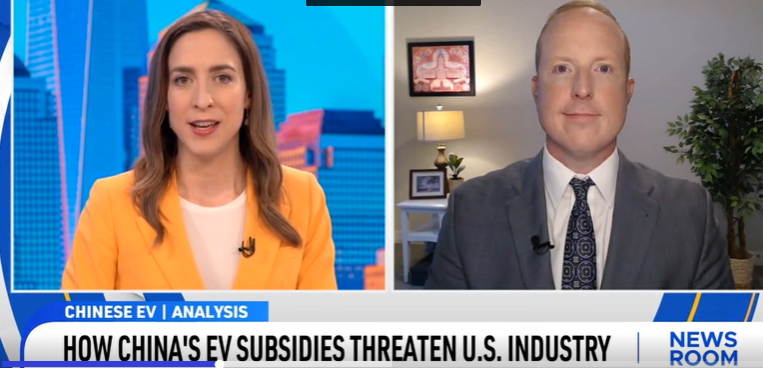
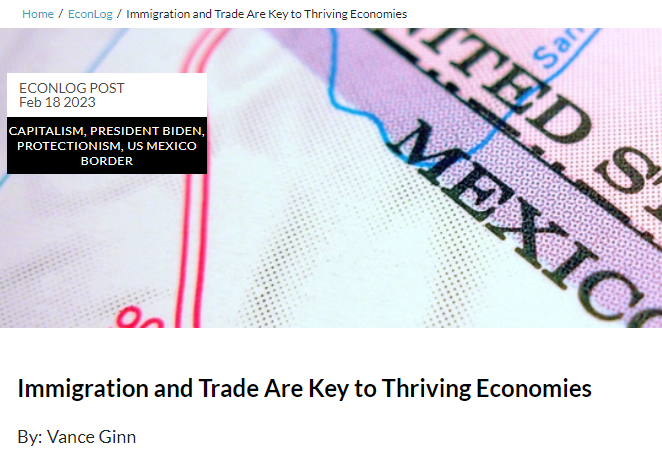
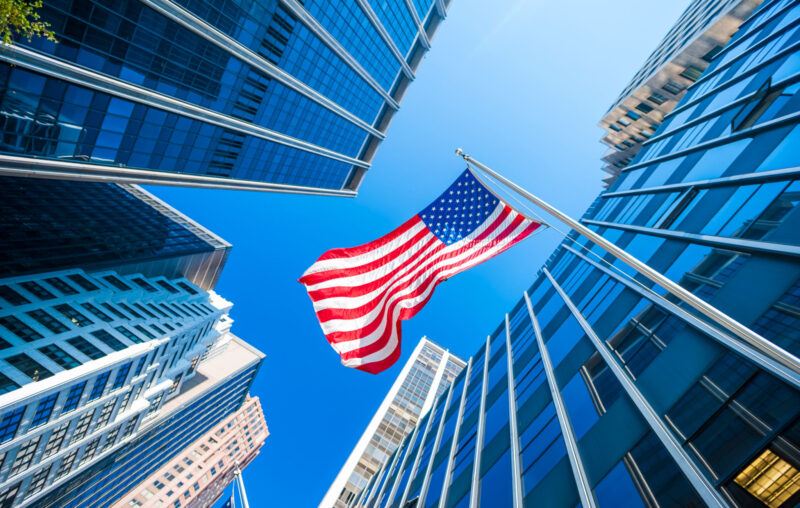
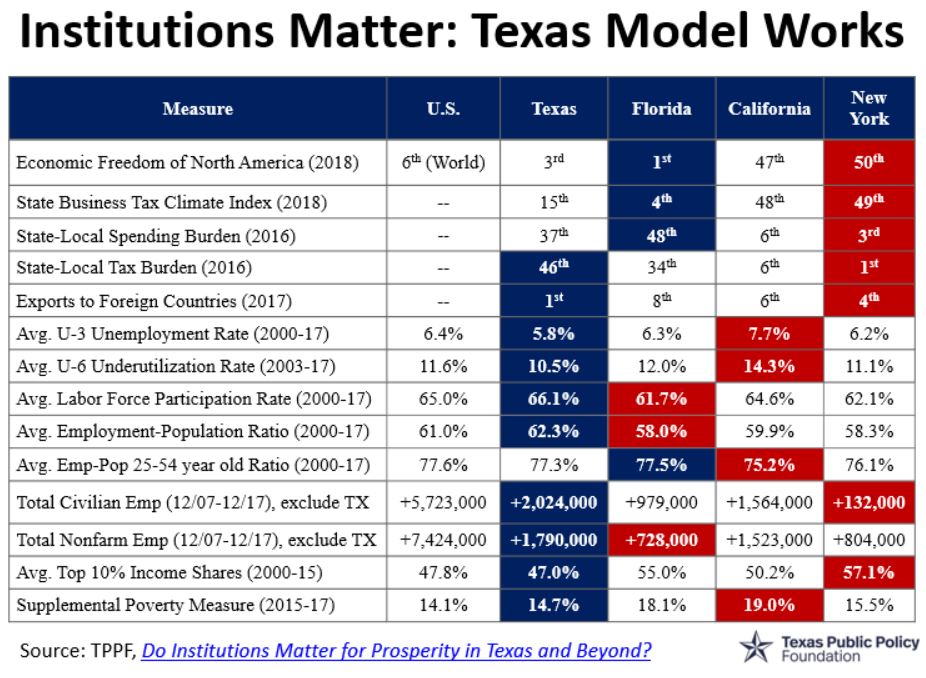
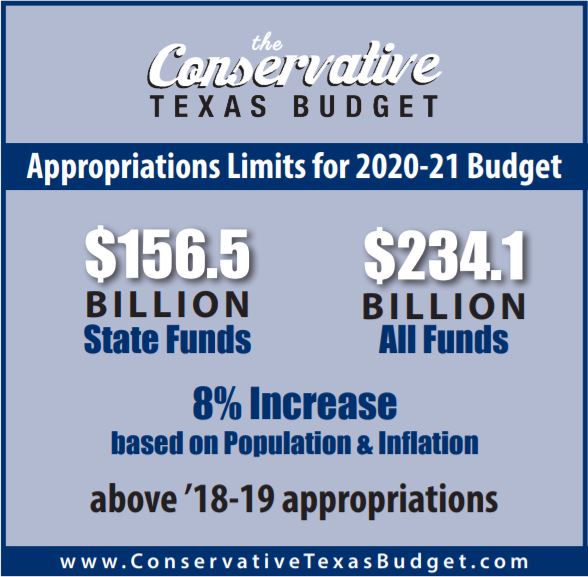
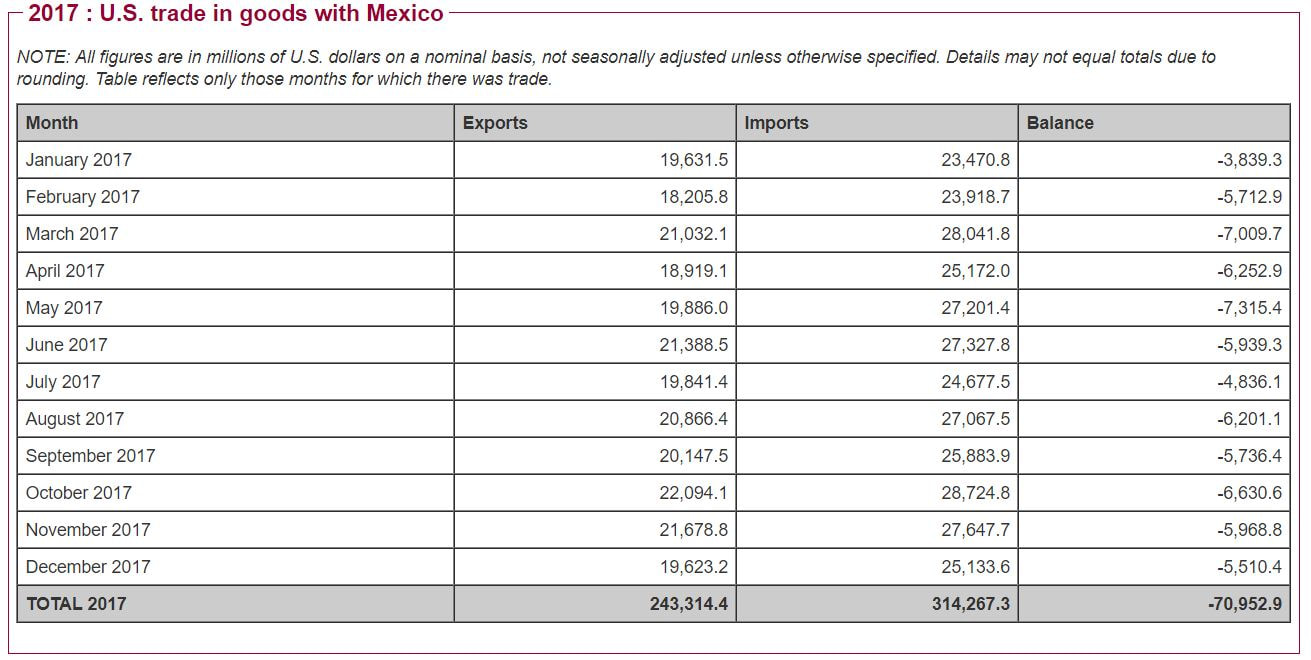
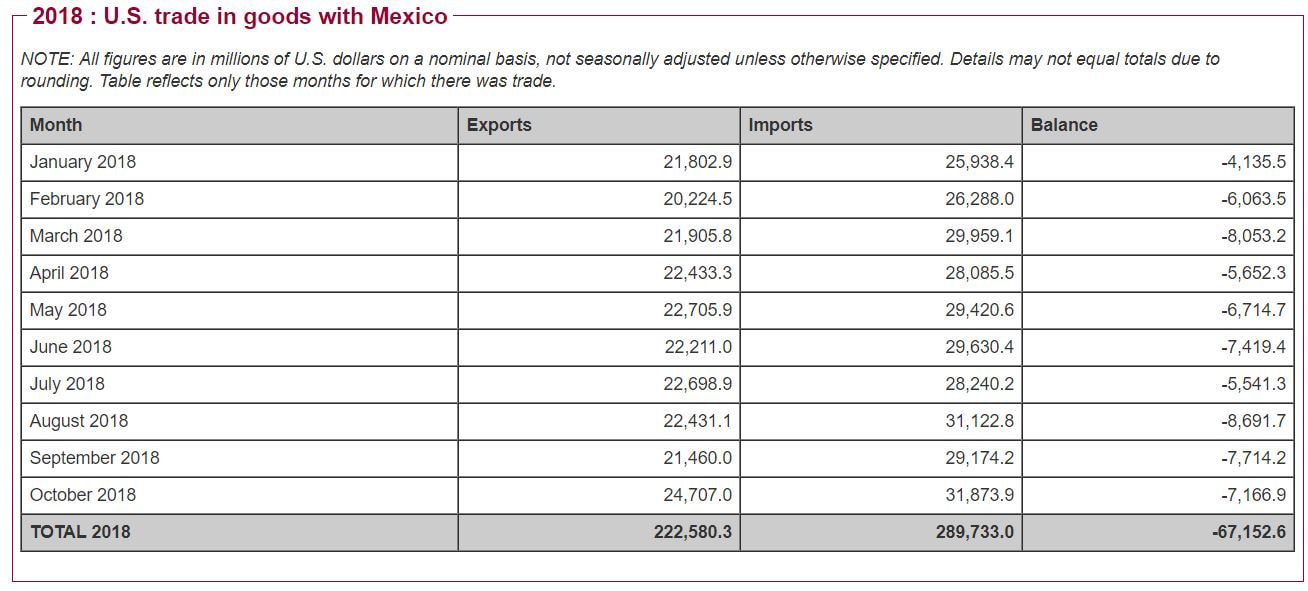
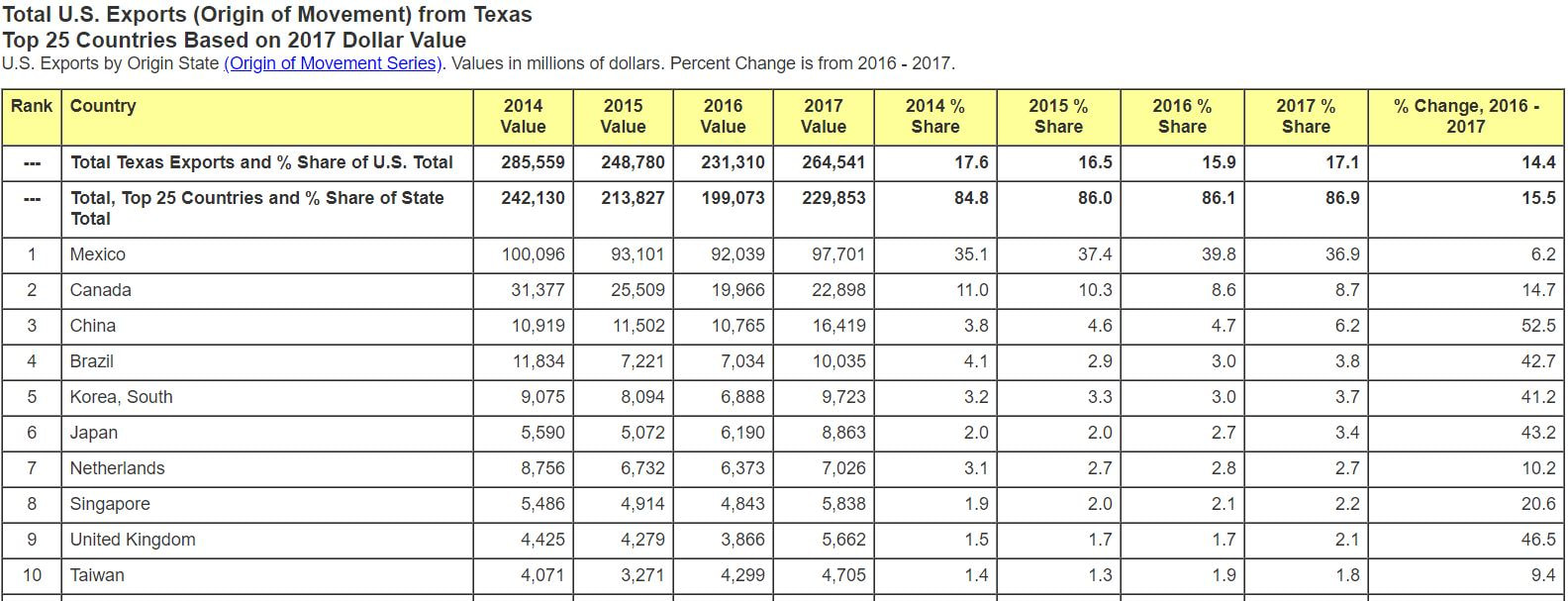
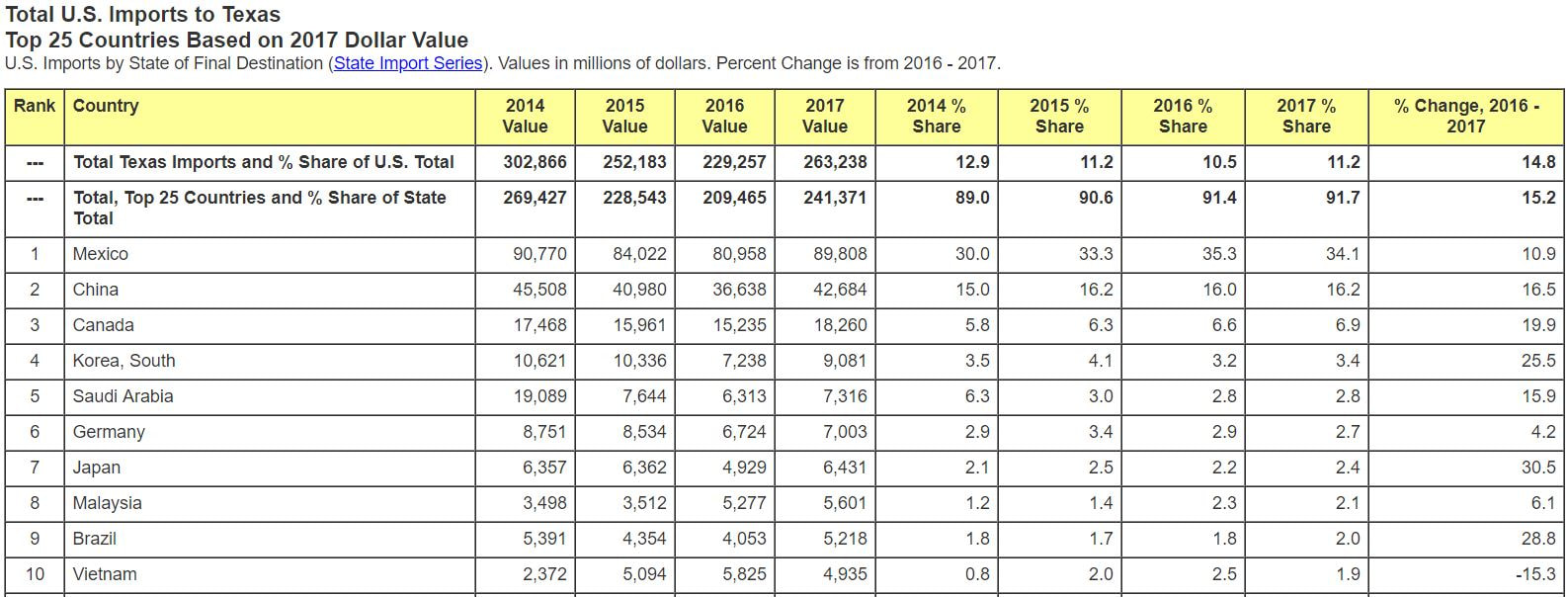
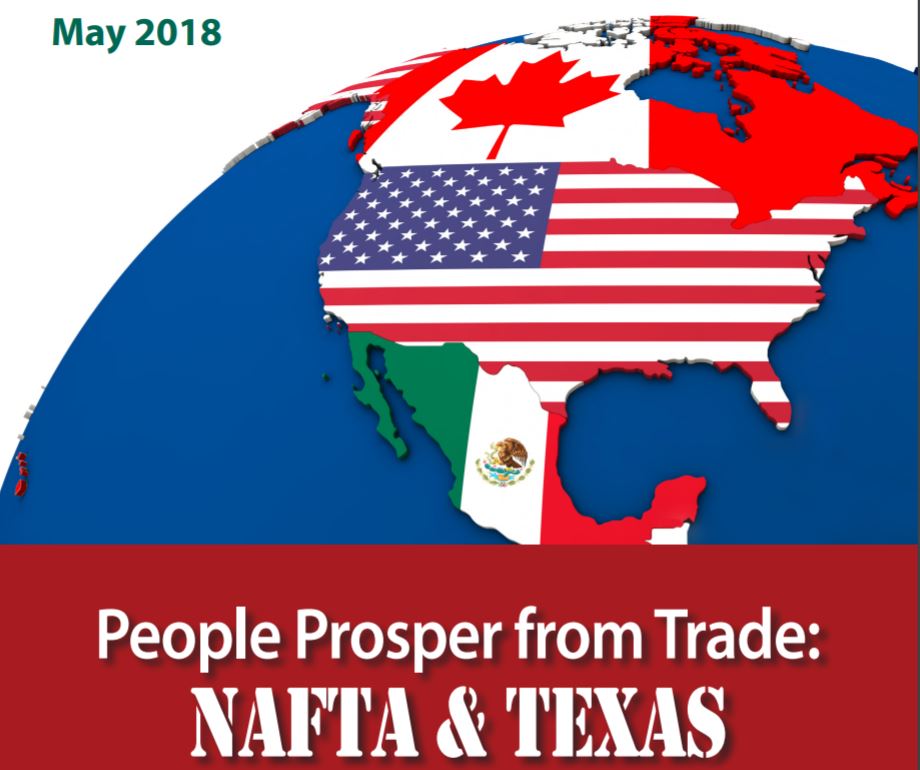
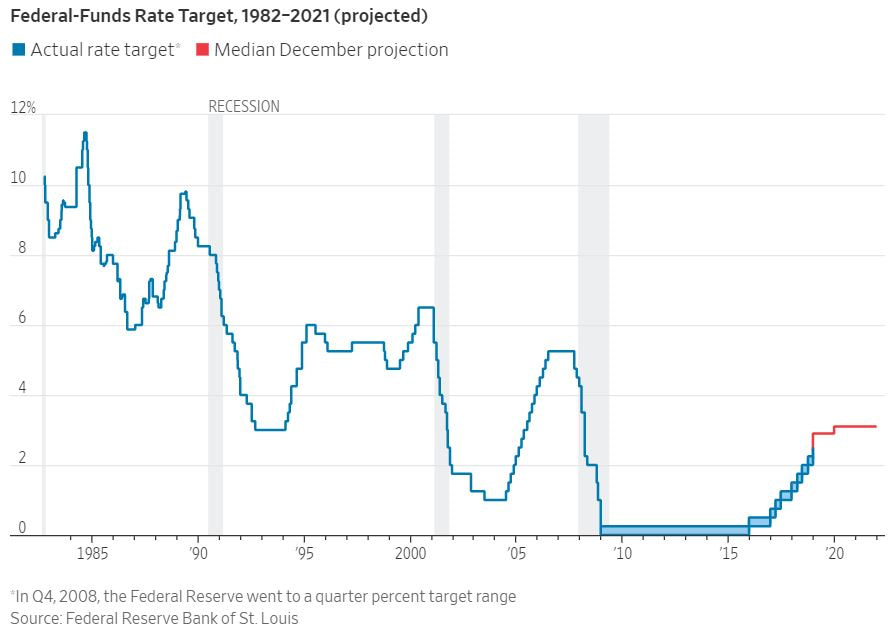
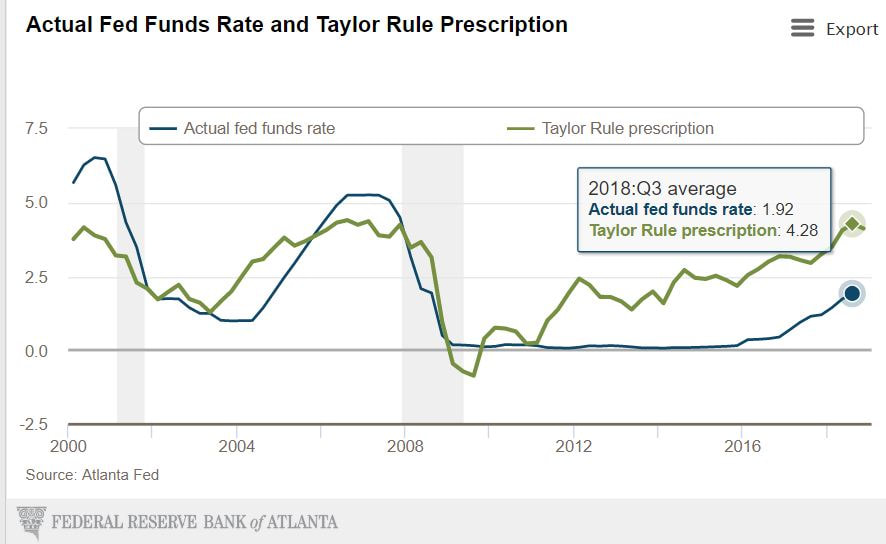
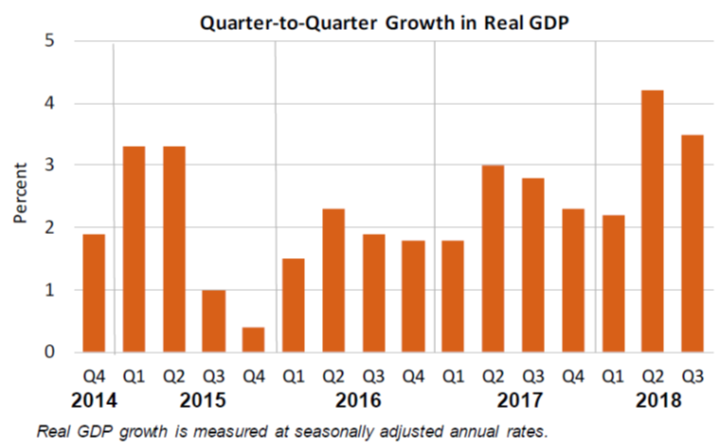
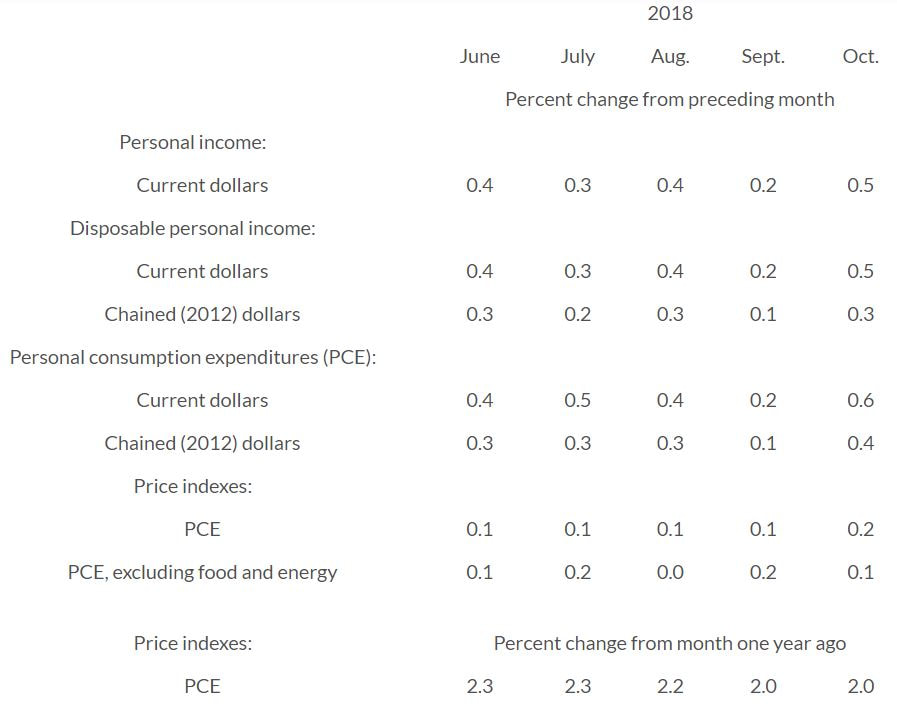
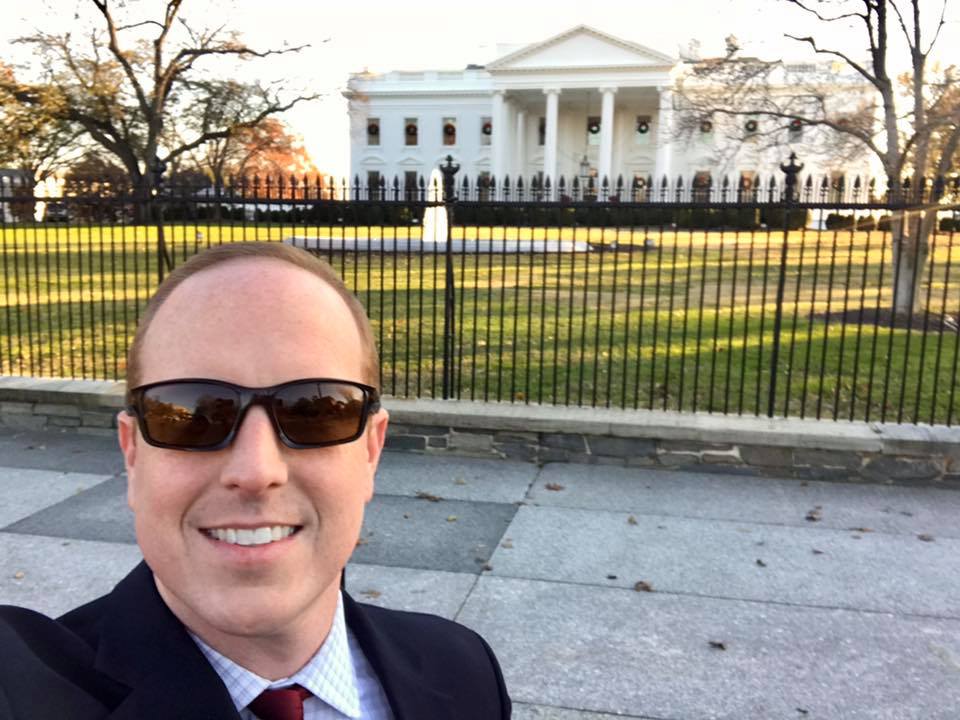
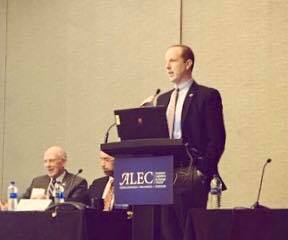
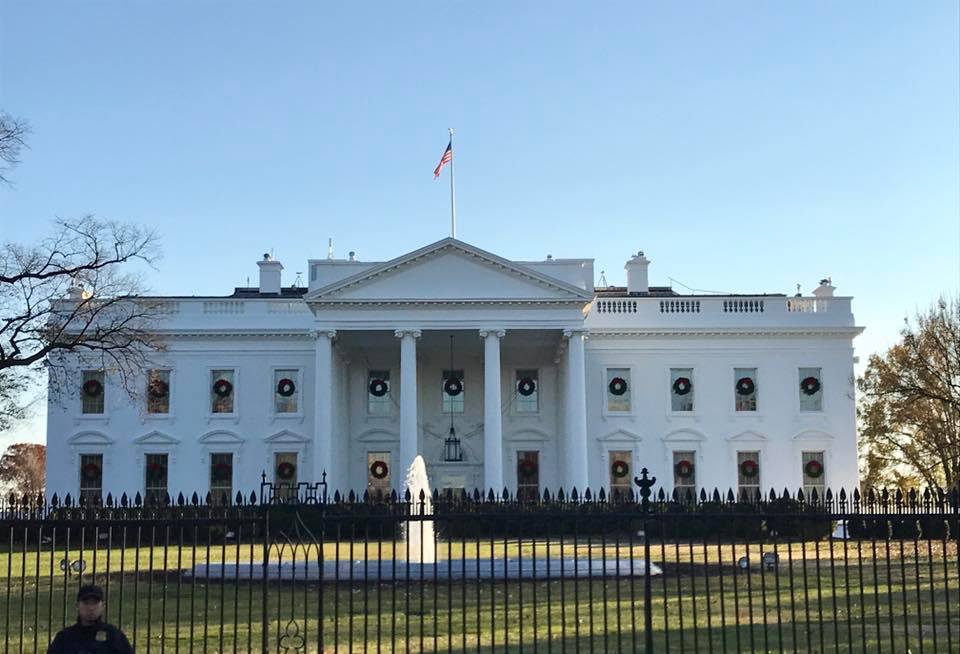
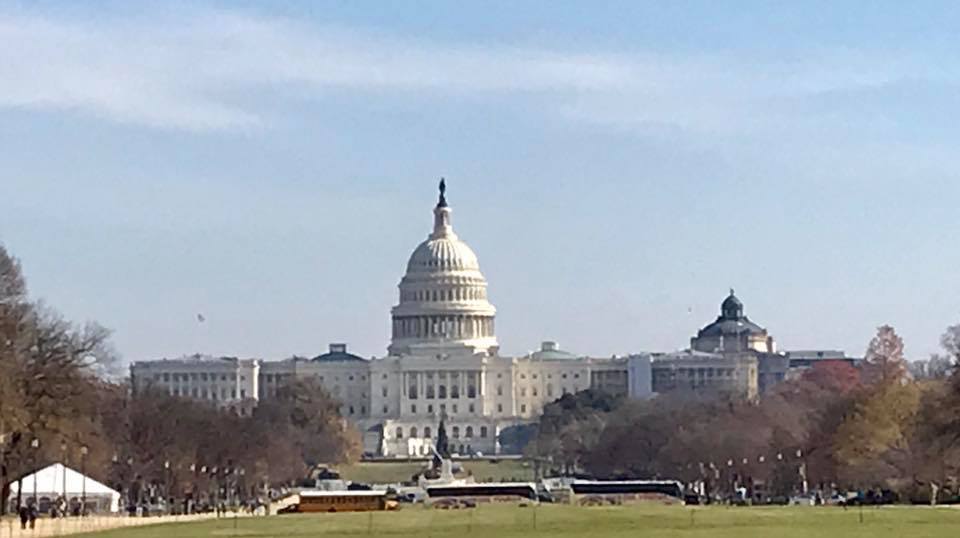
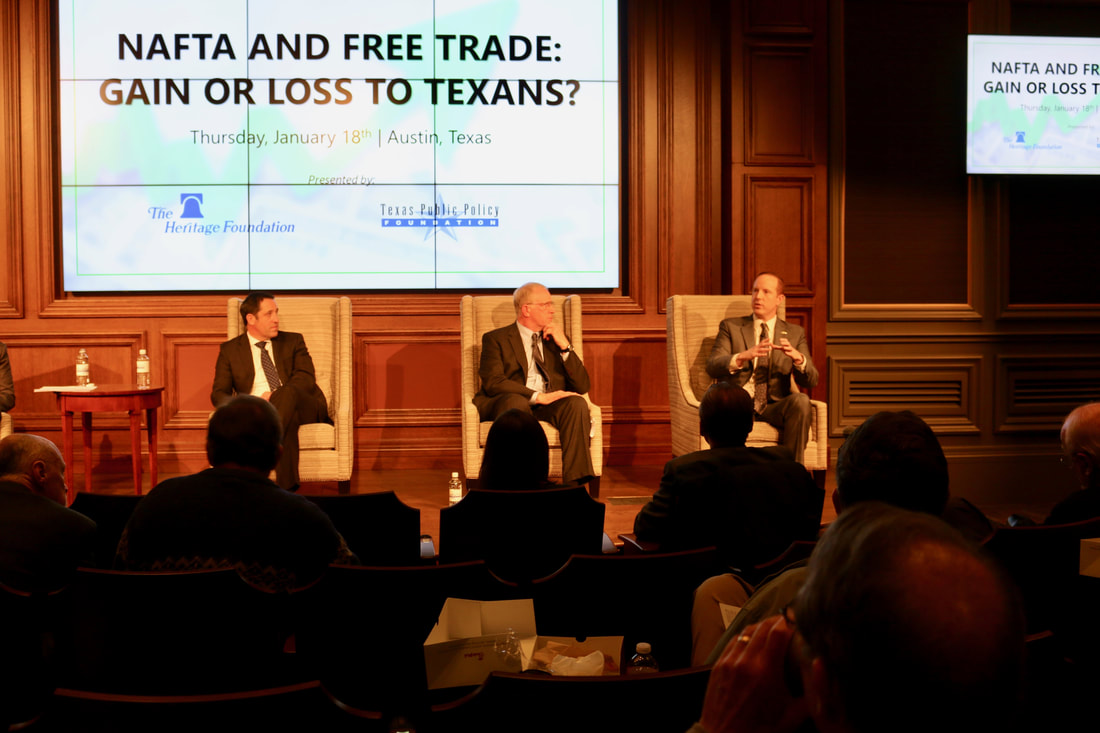
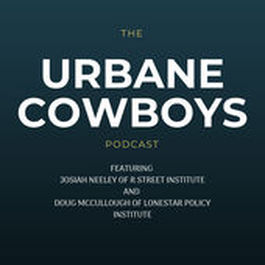
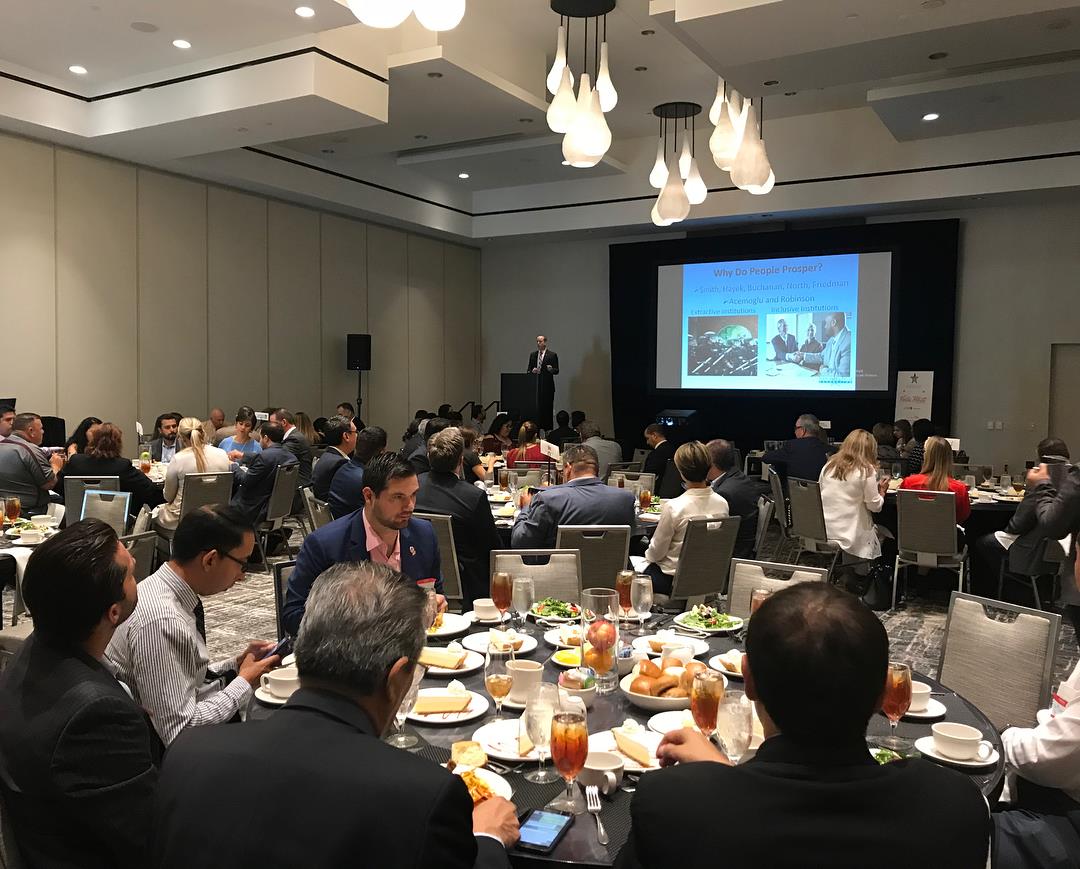
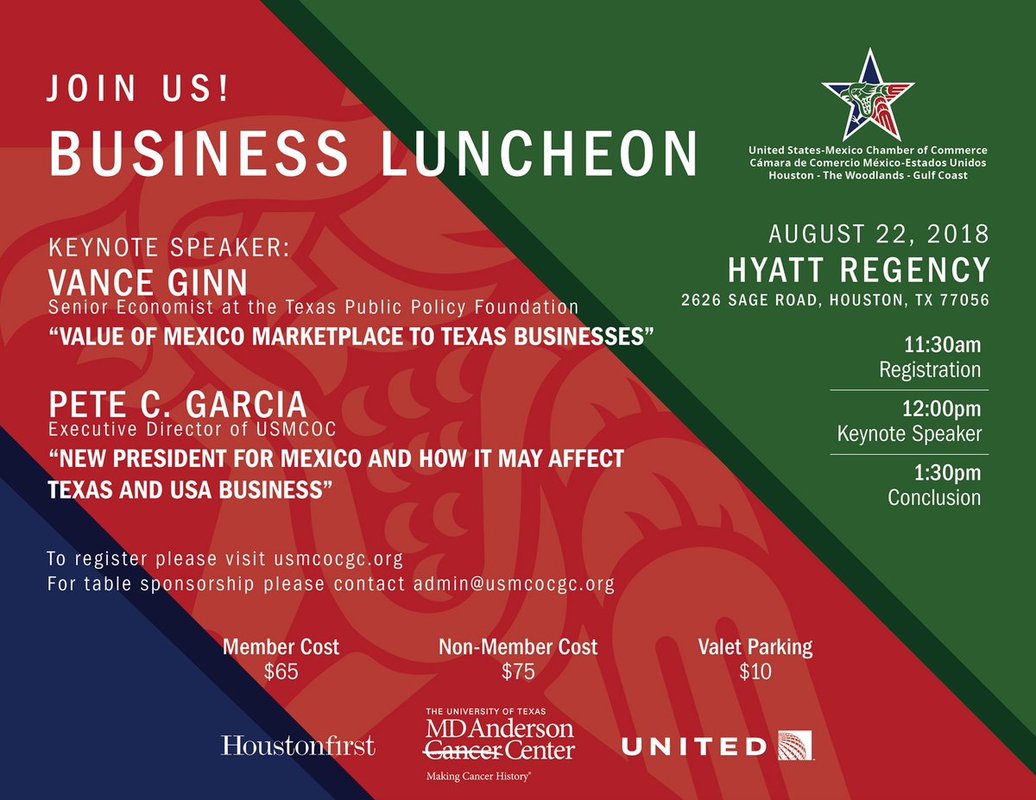
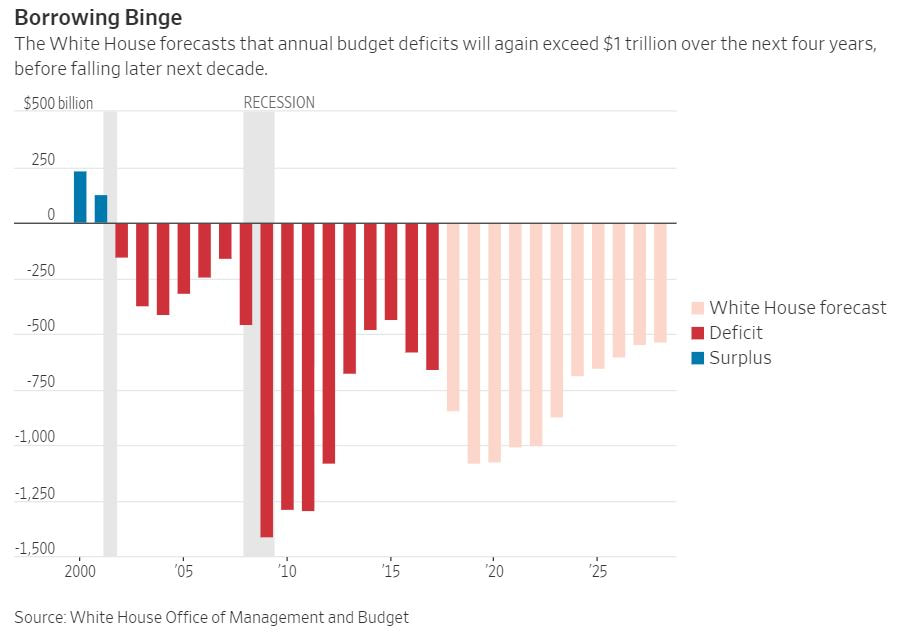
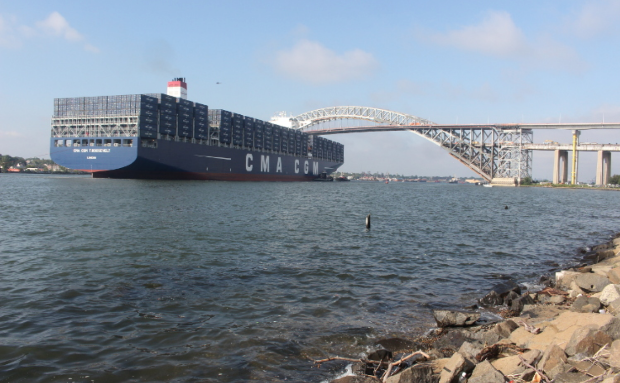

 RSS Feed
RSS Feed